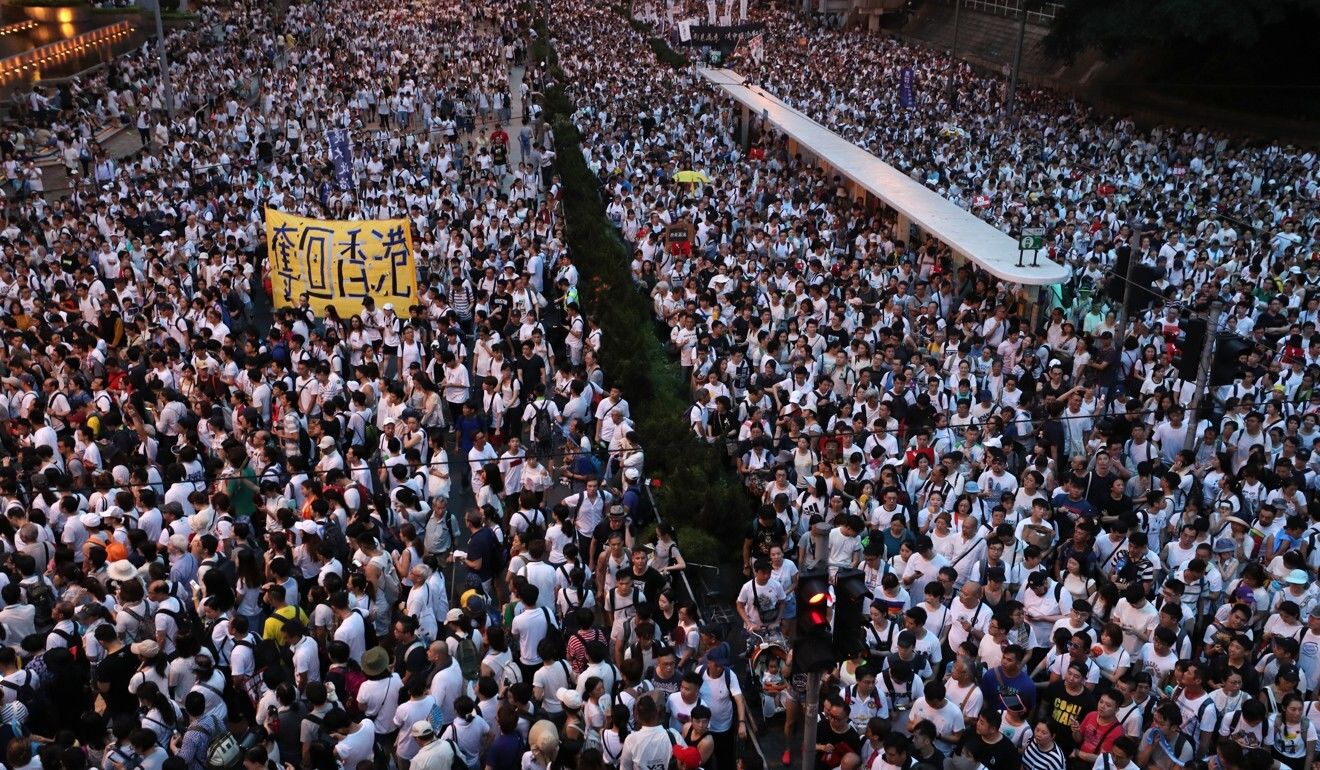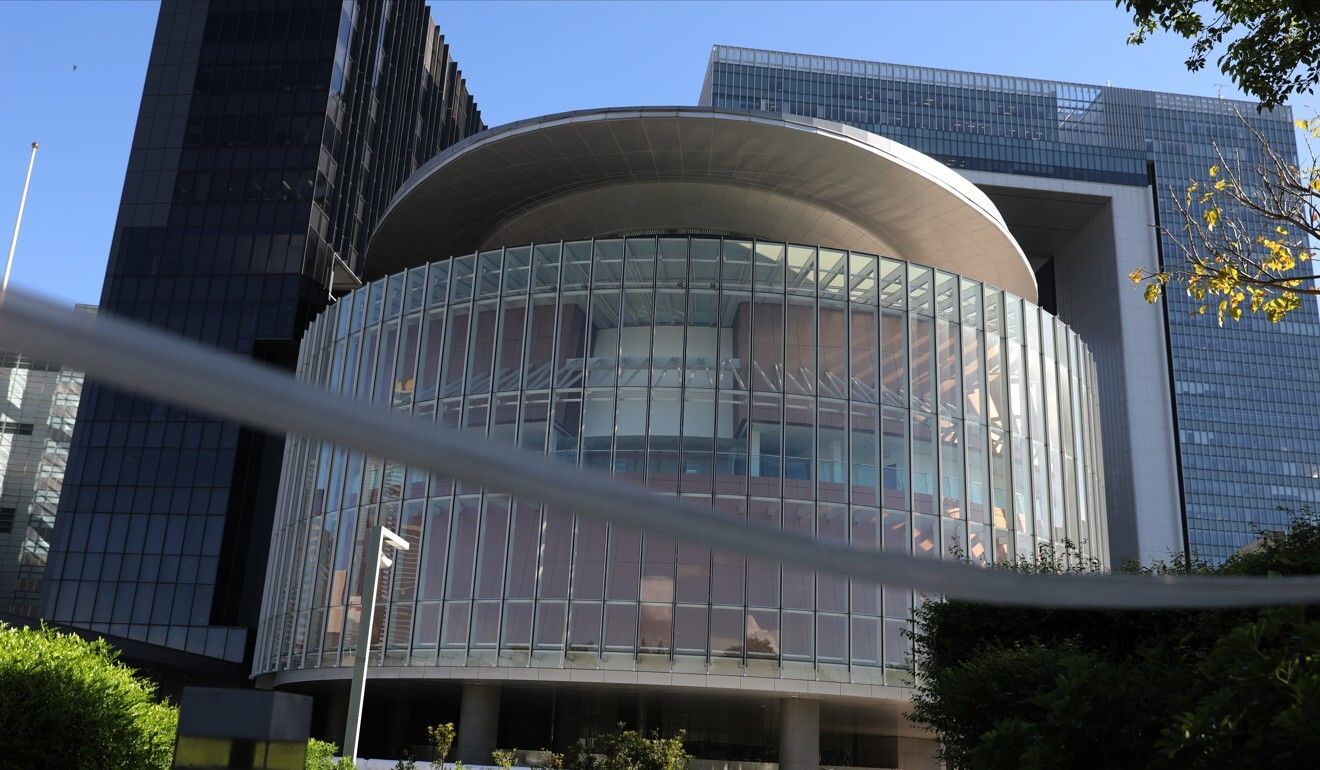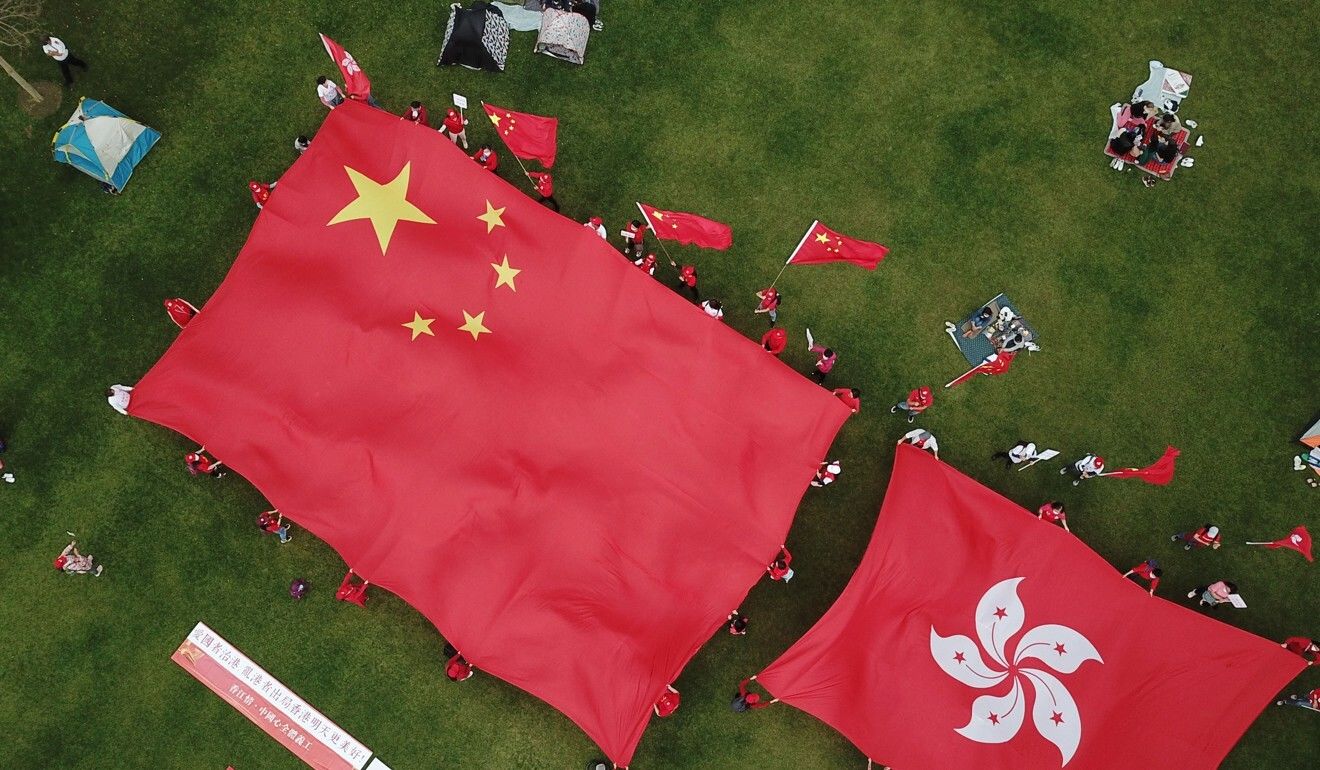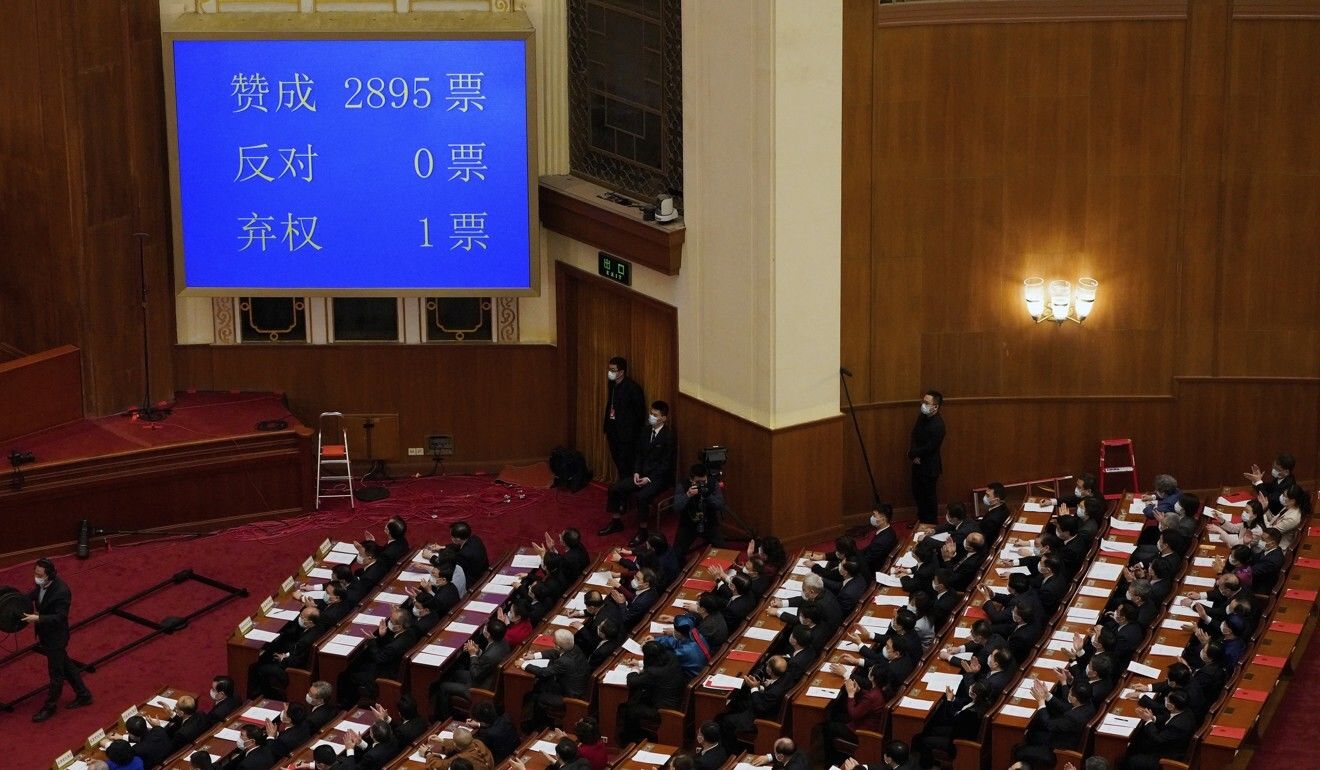Hong Kong News

Two hard truths emerge from meetings over Hong Kong’s political shake-up
Hong Kong’s pro-establishment elite who huddled in meetings with Beijing officials last week on the city’s biggest political shake-up came away with two hard truths: a new power centre was in the making and a vetting committee would be its tough sidekick.
The Election Committee to select the chief executive, which Hong Kong’s political class is familiar with, is being remade into a body that will decide not just on the top job, but also be the gatekeepers determining who gets to run as Legislative Council candidates. For added insurance, it will be sending its own members to the legislature to ensure it is in control.
In the past, the chief executive was arguably the city’s most powerful political figure under an executive-led government, but that effectively changed with the overhaul, sources indicated. The Election Committee will now decide the fate of not just the executive but also the legislature.
The vetting committee, officially called the “candidates’ qualification review committee”, will also be a super powerful body. Its decisions would not be subjected to the scrutiny of the courts, another source said, indicating that otherwise, the courts would have final say on candidates if they were allowed to seek recourse via judicial reviews.
Several sources who attended last week’s meetings said these new realities of Hong Kong’s revamped political architecture were not immediately obvious when the country’s top legislature approved the electoral reforms on March 11.
But their implications were brought home clearly and starkly, they said, during the sessions led by Zhang Xiaoming, deputy director of the Hong Kong and Macau Affairs Office, who wanted to listen to their feedback and also explain the changes.
After some 66 meetings with more than 1,000 of the city’s who’s who in the pro-establishment camp, Hong Kong will now wait for the National People’s Congress (NPC) Standing Committee – which is expected to meet later this week – to have the final say on the details of the electoral overhaul.
Sources present at the meeting said they were briefed on how the electoral reforms were part of the “two-step solution” Beijing had mapped out, after it studied the underlying causes of the anti-government protests of 2019.
The system, it concluded, had been infiltrated by anti-China elements and it was imperative that patriots were put firmly in charge of the city’s institutions under the principle of patriots administering Hong Kong.
Out-of-the-box plan to keep out non-patriots
The first step was the imposition of the national security law last June, to quell the chaos and disorder, and the latest changes to the electoral system were to guarantee stability and guard against any danger of antipatriotic elements creeping into political institutions, hence the new pumped-up muscles of the Election Committee. In explaining the moves, mainland officials framed the solutions as requiring “out-of-the-box” thinking not just of the strategists, but also Hong Kong people, said one of the sources.
“The electoral reform, not just the national security law, is also to bring the city from chaos to governance,” said the source.
“In the series of restructuring, the two important committees will play the core role to ensure the governing structures are never to be controlled by the opposition that included anti-China elements,” another source said.
 Protesters march from Causeway Bay to government headquarters in
Admiralty, in protest against the extradition bill, in June 2019.
Protesters march from Causeway Bay to government headquarters in
Admiralty, in protest against the extradition bill, in June 2019.
Under the plan, the current 1,200-member Election Committee will be transformed into a new 1,500-member body, with the additional 300 members to be drawn from ultra loyalists.
Even the composition of the other 1,200 members would likely be changed, sources have previously told the Post. The new all-powerful Election committee will elect “a relatively large proportion” but yet to be specified number of lawmakers.
As for the vetting body, the source who spoke to the Post on this explained that Beijing had ruled out the possibility of allowing the local courts final say over its decisions.
“Judicial review is technically infeasible. If we wait for the result of the judicial review, the election or even the lawmaker’s tenure would have ended,” the source familiar with Beijing’s thinking said.
“More importantly, it’s politically unfeasible. If the court can overturn the vetting committee’s decision, is it more powerful than the committee? It would render the committee meaningless.”
He also said the central government had agreed that the body should consist of credible members, such as local officials or retired judges, but veteran pro-Beijing delegates to the NPC or the Chinese People’s Political Consultative Conference should be on it too.
Echoing the source, Lau Siu-kai, vice-president of the Chinese Association of Hong Kong and Macau Studies, said: “Beijing will not allow judges to have the final say on matters that might involve state secrets or intelligence concerning possible collusion with foreign forces.”
But who would the vetting committee ultimately answer to? NPC Standing Committee delegate Tam Yiu-chung last week hinted at the answer when he said its members might be appointed by the standing committee. He also agreed that if the body’s decisions were open for challenge before the courts, then elections could be delayed, or even paralysed.
But Basic Law Committee member Albert Chen Hung-yee, a constitutional law professor at the University of Hong Kong, hoped Beijing would reconsider the finality of the committee’s decisions. He hoped the operation of the vetting body could be in line with the existing mechanism that allowed disqualified candidates to challenge decisions made by returning officers.
“According to the existing laws and precedents, anyone who is refused to stand for elections can submit an election petition to the court when the race is over. This legal principle should be applied to decisions of the new committee in the future,” he said.
Fixing the 60:40 ratio to curb opposition
But to understand why the vast new powers of the Election Committee and its sidekick the vetting committee were needed, the sources said, one had to look at the golden ratio of 60:40 of Hong Kong politics.
This figure referred to the typical voting pattern among Hong Kong residents at all polls, with 60 per cent tending to go for the opposition and the remaining 40 per cent siding with the pro-Beijing camp.
Indeed, the figure was cited during the meetings with Zhang and his team, the sources indicated, with many participants agreeing the ratio would likely remain that way for the foreseeable future.
Another source, who was familiar with Zhang’s thinking, said even though the national security law had quelled all protests, the issue of voter sentiment still had to be addressed if there remained every risk of the opposition – especially if it involved anti-China elements – winning the majority in future elections.
“The ratio could have tilted further in favour of the opposition camp, after the imposition of the security law. If the rules remain unchanged, ‘patriots governing Hong Kong’ could not be achieved under the current situation,” this source said.
Hence, the move to ensure the number of directly elected seats would be slashed as the opposition tended to fare better at such seats and, for added insurance, the newly empowered Election Committee will send its own members to the Legco. Both moves would effectively curb any outsize role the opposition could aspire to play.
Assessing the changes, Basic Law Committee member Albert Chen agreed that considering that the legislature was undermined by radicalised politicians who pursued “confrontational, non-cooperative or ‘mutual destruction’ tactics”, a drastic overhaul would solve Beijing’s worries.
He read the reforms as a means of “institutional safeguards” for the implementation of “one country, two systems”, and improving the quality of governance.
“Without a reform of the electoral system, it is not impossible for the opposition camp in future to win a majority of Legco seats and a large share of Election Committee seats,” he said.
 The Legislative Council Complex in Tamar.
The Legislative Council Complex in Tamar.
For now, it is unclear how the 300 additional seats in the Election Committee would be allocated. Various Beijing-friendly community groups, including the Hong Kong Federation of Fujian Associations and the New Territories Association of Societies, had called for their inclusion in the committee.
Power was shifting clearly and indisputably to ultra loyalists but with one caveat, said Tian Feilong, an associate professor at Beihang University’s Law School.
They would not be just the pro-establishment types of the old mould whom Beijing felt had disappointed them before, according to Tian, whose earlier remarks that the central government did not want to see the city run by “loyal trash” sparked an outcry in the bloc.
“The utmost important qualities members in the revamped committee should possess is an accurate understanding in the relationship between China and Hong Kong, so that they could perform a gatekeeping role to prevent anti-China elements from entering the governing structure,” he said.
He believed the enlarged Election Committee would enhance internal competition among the bloc, prompting members to “perform better” in acting in the interests of the city.
The 70-strong Legco is currently made up of 35 lawmakers elected from five geographic constituencies, with the remaining 35 elected from 29 functional constituencies, mostly trade-based interest groups.
The Post earlier reported that Beijing was all but certain to allocate at least 40 seats to the Election Committee and 30 to the functional constituencies, leaving 20 to be decided through direct elections in the revamped 90-member legislature.
 Hong Kong residents display the Chinese flag and Hong Kong flag at Tamar Park.
Hong Kong residents display the Chinese flag and Hong Kong flag at Tamar Park. How will the dust settle?
Reactions from both the international and local community had been mostly negative towards the changes, but Beijing remains unmoved. If anything, condemnation from the international community would only make it dig its heels in deeper on an issue framed as defending sovereignty, said the sources who attended last week’s meetings.
“[Taking a moderate approach] won’t win Beijing any applause from the West … So why not take a stringent approach by granting the Election Committee the biggest share in Legco and plug the loopholes? It may get Beijing some credit in future when it is relaxed when the public sentiment improves in Hong Kong,” one of them said.
He added: “Once the whole legal framework and mechanism are properly installed in Hong Kong, there is of course hope for universal suffrage in future.”
But veteran China watcher Johnny Lau Yui-siu warned that the overhaul could also only induce hostile infighting within the pro-establishment bloc, instead of steering the city back to the path of “one person, one vote”.
“When loyalty to the Chinese Communist Party and its leadership becomes the quality that is most valued, members are not encouraged to make critical suggestions on governance,” he said.
“Internal conflicts among members of the enlarged Election Committee would not be solved as easily as Beijing might think, as new calculations and tactics could emerge when rules of the game are totally rewritten.”
Ma Ngok, a political scientist at Chinese University, said axing direct seats might only worsen deep-rooted problems in society and discontent towards the government.
“A legislature largely controlled by the pro-establishment bloc could only represent fewer than half of Hongkongers considering the ‘golden ratio’,” he said. “How can the governance be improved if the system of reflecting public opinion is distorted?”
 Delegates in Beijing applaud near a screen showing number of votes
supporting the plan to give a pro-Beijing committee power to appoint
more of Hong Kong's lawmakers.
Delegates in Beijing applaud near a screen showing number of votes
supporting the plan to give a pro-Beijing committee power to appoint
more of Hong Kong's lawmakers.
A source present at the meetings with Zhang said the Beijing officials expressed the hope of wanting to engage the opposition in future. But the camp itself said it was not holding its breath, given how the major opposition parties were not invited to the consultation sessions.
Tik Chi-yuen, who left the Democratic Party in 2015 to found centrist party Third Side, believed he was one of the few in the pro-democracy camp who was invited to meet the officials.
Lau Siu-kai, the vice-president of the Chinese Association of Hong Kong and Macau Studies, urged pan-democrats to reposition themselves as “loyal reformists” and distance themselves from radicals.
“When there comes a day when anti-China elements are eliminated, constructive forces in the opposition bloc may have a chance to rise again,” he said.











